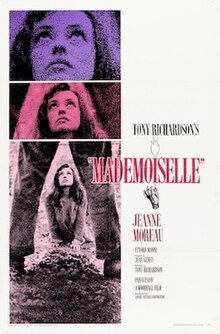Cecil Antonio Richardson was an English theatre and film director, producer and screenwriter, whose career spanned five decades. He was identified with the "angry young men" group of British directors and playwrights during the 1950s, and was later a key figure in the British New Wave filmmaking movement.
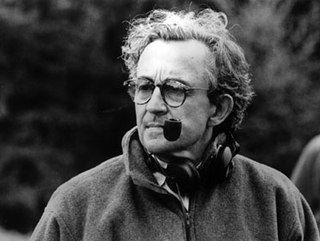
Louis Marie Malle was a French film director, screenwriter, and producer who worked in both French cinema and Hollywood. Described as "eclectic" and "a filmmaker difficult to pin down", Malle made documentaries, romances, period dramas, and thrillers. He often depicted provocative or controversial subject matter.
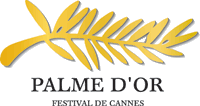
The Palme d'Or is the highest prize awarded to the director of the Best Feature Film of the Official Competition at the Cannes Film Festival. It was introduced in 1955 by the festival's organizing committee. Previously, from 1939 to 1954, the festival's highest prize was the Grand Prix du Festival International du Film. In 1964, the Palme d'Or was replaced again by the Grand Prix, before being reintroduced in 1975.

Jeanne Moreau was a French actress, singer, screenwriter, director, and socialite. She made her theatrical debut in 1947, and established herself as one of the leading actresses of the Comédie-Française. Moreau began playing small roles in films in 1949, later achieving prominence with starring roles in Louis Malle's Elevator to the Gallows (1958), Michelangelo Antonioni's La Notte (1961), and François Truffaut's Jules et Jim (1962). Most prolific during the 1960s, Moreau continued to appear in films into her 80s. Orson Welles called her "the greatest actress in the world".
Hugh Hudson was an English film director. He was among a generation of British directors who would begin their career making documentaries and television commercials before going on to have success in films.

Albert Lamorisse was a French filmmaker, film producer, and writer of short films which he began making in the late 1940s. He also invented the strategic board game Risk in 1957.

Jacques Audiard is a French film director, producer, and screenwriter. He is the son of Michel Audiard, also a film director and screenwriter.
The Adolescent is a French drama film directed by Jeanne Moreau in 1978, released January 1979. It was entered into the 29th Berlin International Film Festival. Set deep in the French countryside just before the start of World War II, it shows the idyllic life of a remote village in the mountainous Auvergne where a family from Paris has come to holiday with relatives. The family get-together marks a coming-of-age for daughter Marie, the adolescent of the title.

The 28th Cannes Film Festival was held from 9 to 23 May 1975. The Palme d'Or went to the Chronique des Années de Braise by Mohammed Lakhdar-Hamina. In 1975, a new section, "Les Yeux fertiles", which was non-competitive, was introduced. This section, along with sections "L'Air du temps" and "Le Passé composé" of the next two years, were integrated into Un Certain Regard in 1978.
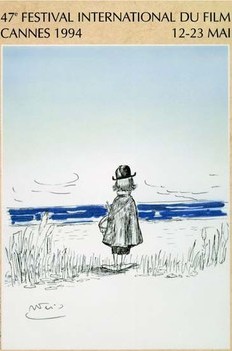
The 47th Cannes Film Festival was held from 12 to 23 May 1994. The Palme d'Or went to the American film Pulp Fiction directed by Quentin Tarantino.
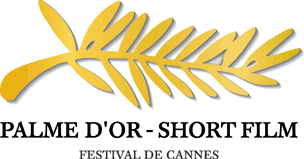
The Short Film Palme d'Or is the highest prize given to a short film at the Cannes Film Festival. Since the creation of the Cinéfondation section in 1998, a common Official Jury awards the Short Film Palme d'Or as well as the prizes for the three best films of the Cinéfondation.

The 62nd Cannes Film Festival was held from 13 May to 24 May 2009. French actress Isabelle Huppert was the Jury President. The Palme d'Or winner was The White Ribbon, directed by Michael Haneke.

The 13th Cannes Film Festival was held from 4 to 20 May 1960. The Palme d'Or went to the La Dolce Vita by Federico Fellini. The festival opened with Ben-Hur, directed by William Wyler.
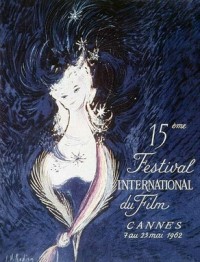
The 15th Cannes Film Festival was held from 7 to 23 May 1962. The Palme d'Or went to the O Pagador de Promessas by Anselmo Duarte. The festival opened with Les Amants de Teruel, directed by Raymond Rouleau.

The 50th Cannes Film Festival was held from 7 to 18 May 1997. The Palme d'Or was jointly awarded to Ta'm e guilass by Abbas Kiarostami and Unagi by Shohei Imamura. Jeanne Moreau was the mistress of ceremonies.

The 46th Cannes Film Festival was held from 13 to 24 May 1993. The Palme d'Or went to Farewell My Concubine by Chen Kaige and The Piano by Jane Campion.
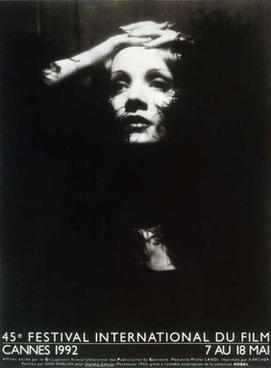
The 45th Cannes Film Festival was held from 7 to 18 May 1992. The Palme d'Or went to the Den goda viljan by Bille August.

Seven Days... Seven Nights is a 1960 French drama film directed by Peter Brook. It was entered into the 1960 Cannes Film Festival, where Jeanne Moreau won the award for Best Actress. The film is based on the 1958 novel Moderato cantabile by Marguerite Duras.
Service is a 2008 Filipino independent drama film directed by Brillante Mendoza and stars Gina Pareño as the matriarch of the Pineda family who owns a porn cinema in Angeles City. The film competed for the Palme d'Or in the main competition at the 2008 Cannes Film Festival. It is also the first Filipino film to compete at the main competition in Cannes, since Lino Brocka's Bayan Ko: Kapit sa Patalim in 1984.
This is a list of the films directed by Luis Buñuel.
